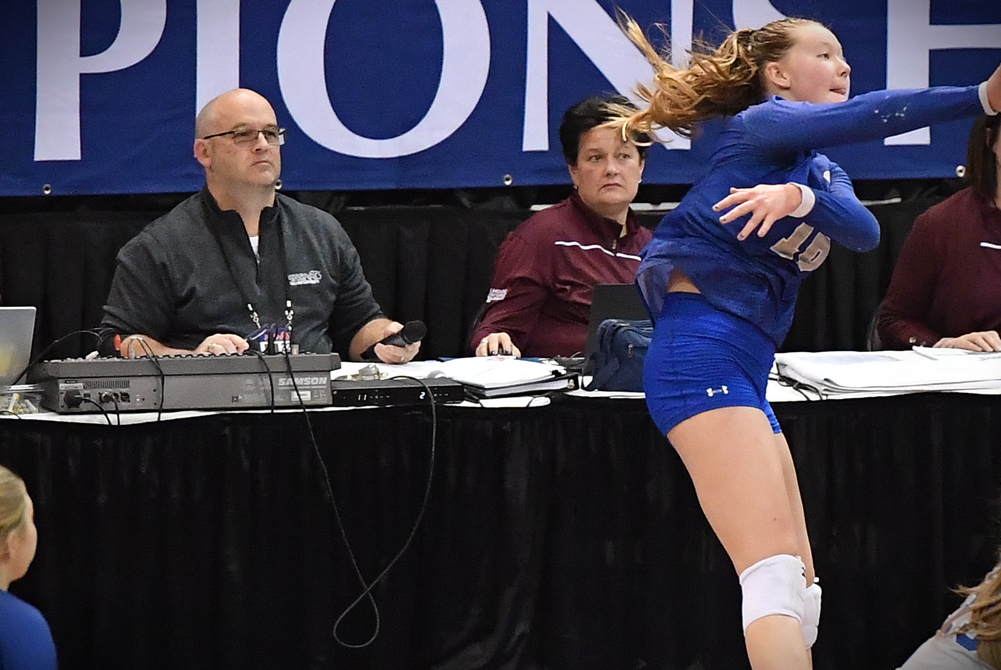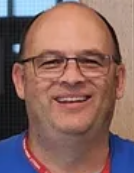
Summer Safety
August 28, 2012
As we have been considering changes for in-season football practice rules that are more in step with recent recommendations of the National Athletic Trainers Association, the American Academy of Pediatrics and the National Federation of State High School Associations, as well as the actions of several of our counterpart state organizations across the U.S., we have also been looking at the rules that apply out of season to assure they do not work against the preparation of students for a safe experience.
Except during the school’s designated summer dead period of at least seven consecutive days, football coaches may interact with any number of players in voluntary weight training and conditioning sessions as frequently as they desire. Introduce footballs and helmets, and the coach can still work with any number of students on the sideline and up to seven players at a time for any number of days. Add competition, and the coach can still work with up to seven players at a time for a maximum of seven days. In addition, football coaches may participate for a maximum of ten days at bona fide football camps where any number of their players are participating.
Plenty of time for coaches to teach, and even more time for players to train. During this time, the rules permit students to wear helmets, which protect against accidental collisions during drills; but the rules prohibit other pads that would allow activities to escalate to the point where contact is expected, leading to increased blows to the head at a time when the objective from the pros to Pop Warner is to reduce blows to the head.
When the brief preseason down time begins Aug. 1, the coach continues to be able to work with any number of players in conditioning and weight training. The down time prohibits those activities that could be a disguise for practice prior to the earliest allowed practice date – open gyms, camps, clinics and competition. The down time puts the emphasis where it’s most needed for a healthy student experience when practice actually begins: that’s weight training and conditioning.
Some critics may focus on what they can’t do in the summer; but clearly, there’s much they can do, and it’s all designed to help players improve and excel in a safe environment.

In Memoriam: Tony Coggins (1971-2023)
By
Geoff Kimmerly
MHSAA.com senior editor
October 24, 2023
The MHSAA and Holly school communities are grieving this week after the sudden loss of Tony Coggins, a shining light in his educational community and an enthusiastic supporter of school sports as a public address announcer for several of our largest championship events.
But while that cheerful tone has been quieted, it surely will not be forgotten by the many fortunate to enjoy an event in the presence of that voice and the joyfulness he brought into every arena, press box and classroom.
Coggins, 51, died Saturday. He is survived by his wife Kristy and children Emma and Bradlee, among several family and friends from his local and greater sports communities.
 His career as a PA announcer began during his freshman year of high school in 1985, when his father Dale Coggins – Flushing’s athletic director at the time – couldn’t find anyone else to announce middle school football games. That was 39 years ago, and this fall Tony Coggins was in his 24th announcing at Holly, where he taught and served as an administrator in addition to his role as “Voice of the Holly Bronchos” for football, basketball, baseball, softball, volleyball, competitive cheer and swimming & diving over the years.
His career as a PA announcer began during his freshman year of high school in 1985, when his father Dale Coggins – Flushing’s athletic director at the time – couldn’t find anyone else to announce middle school football games. That was 39 years ago, and this fall Tony Coggins was in his 24th announcing at Holly, where he taught and served as an administrator in addition to his role as “Voice of the Holly Bronchos” for football, basketball, baseball, softball, volleyball, competitive cheer and swimming & diving over the years.
Coggins has been a mainstay among MHSAA Finals PA announcers over the last decade in football, basketball, softball and most recently volleyball. He lent his voice to college sports at University of Michigan as well. “Tony was a huge part of our Finals events. It’s hard to imagine it being the same without him,” MHSAA Executive Director Mark Uyl said.
As part of the run-up to the MHSAA public address announcers clinic in 2018, Coggins said this about what drew him to the microphone:
“I have zero athletic ability whatsoever, which is interesting because my father was an all-state running back. But I enjoy being involved, and I've always been the one for history and statistics and knowing what's going on,” Coggins said. “This is a way for me to be involved. It's a way for me to use a talent I've been given; public speaking has always come pretty naturally for me.
“So I worked at my craft to get better. I got better from watching the people around me, from studying the people I like, and the people – if I saw someone I didn’t care for – I'd make a note and say to myself, ‘Don't do that.’ I take feedback from people very personally, and I mean that in a good way. If somebody takes the time to come up and say, ‘You did this well; I think you should change this,’ that means they care about the program also. We all have the same goal in mind, and that's to make the experience good for the high school student and the parents, the fans, that come there.”
Funeral Mass will be celebrated at 11 a.m. Saturday, Oct. 28, at St. John Vianney, 2415 Bagley Street in Flint. There will be visitation from 2-8 p.m. Friday, Oct. 27, at the Swartz Funeral Home, 1225 West Hill Road, and at the church from 10 a.m. Saturday until the time of the Mass.
The Holly volleyball team played for something bigger tonight
Beloved PA announcer Anthony Coggins died on Friday night from a heart attack
Tonight v. Carman-Ainsworth, the Broncho community wore his favorite colors: maize & blue🟡🔵@HollyHighSchool|@BronchosAD
⬇️⬇️⬇️ pic.twitter.com/lPCRjjdmyL
— Brandon Green🍀 (@BGreenReports) October 24, 2023

